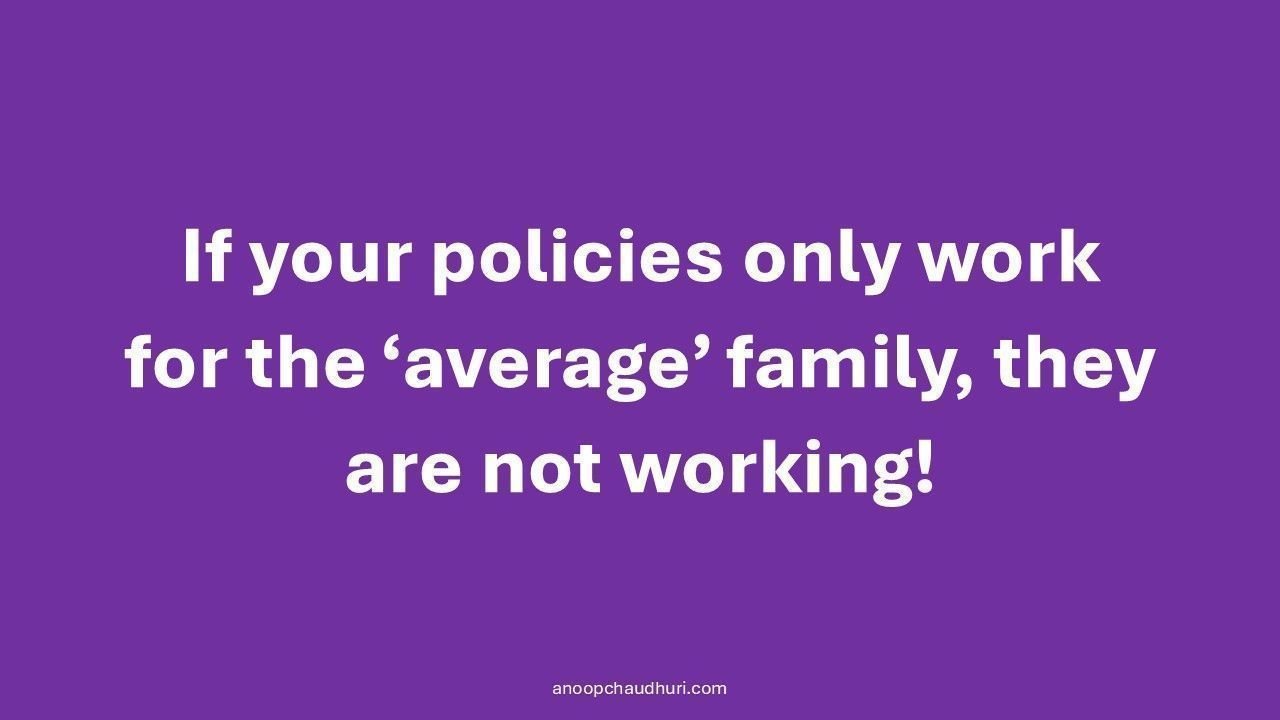The New Shape of Families Demands a New Shape of Leadership
If your policies only work for the ‘average’ family, they’re not working.
This is the final insight in my five-part series on what the latest research from the Australian Institute of Family Studies tells us about caring, careers, and the changing shape of Australian families.
And this one might surprise you.
👩👩👧👦 Female same-sex couples reflect similar dynamics to opposite-sex couples—47% include at least one partner working part-time.
👨👨👧 Male same-sex couples are more likely to both work full-time—33% dual full-time employment rate.
So even in households outside the traditional family model, gendered expectations around work and care persist.
That tells us something important:
📌 It’s not just biology. It’s structure, culture, and the signals we send about who should care and who should work.
Here’s What Needs to Change:
🔹 Design for diversity by default—not exception.
Every family structure should be able to see themselves in your policies.
🔹 Rethink your ‘primary carer’ language.
Caregiving isn’t a title. It’s a reality—and often a shared one.
🔹 Update your benefits with inclusivity in mind.
Leave, support programs, and flexibility should be agnostic to gender or relationship structure.
The Strategic Playbook for Leaders:👇
✅ Audit inclusivity in your people policies. Do your parental leave, flexibility, and caregiver supports reflect all family types—single parents, same-sex couples, adoptive parents?
✅ Train your managers to lead inclusively. Many assumptions about ‘who needs what’ go unchecked—until someone opts out or burns out.
✅ Spotlight diverse caregiving stories. Use internal comms and leadership forums to elevate stories that break the stereotype.
✅ Link this to performance, not just culture. Inclusive workplaces retain talent, boost belonging, and support business continuity across life stages.
📘 In Closing the Gender Pay Gap, I stress the importance of designing systems that reflect reality, not idealised norms. That means building support for all carers, in all their forms.
Because if inclusion isn’t built into your systems, it ends up depending on permission—and that’s not leadership.
📩 Message me if you’d like a copy of the whitepaper,
What’s one way your organisation could support all families more meaningfully?
A former Board Member, CPO, and 2022 HR Leader of the Year, Anoop creates the space for C-suite leaders to turn complexity into clarity and strategy into action.

